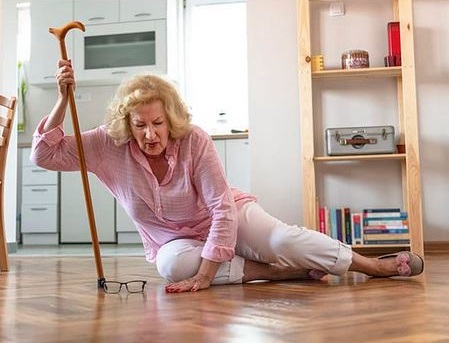We already know from studies that excess weight, especially visceral fat — body fat that’s stored within the abdominal cavity — increases the risk of many conditions, such as:
- heart disease, including heart attacks
- type 2 diabetes
- raised cholesterol, especially triglycerides
- raised blood pressure
- stroke
- Breast and colorectal cancer
- Alzheimer’s disease, the most common form of senile dementia
Now, there is evidence that excess fat may have mental effects as well — that having too much fatty tissue in the body impairs our brains.

Lizzo is a rapper who is proud of being fat, and is lauded for her “body positivity”. In a recent video, she celebrates having put on more weight, calling her fat acceptance “unconditional self-love”. (New York Post)
A recent Canadian study of 9,200 adults aged 30 to 75 years found what appears to be fat’s direct harm on one’s ability to think quickly, even after taking into account heart health, brain status (injury) and education. The researchers found that as body fat rose, people processed information more slowly, as if their brains had actually aged — by as much as one year for every 9% increase in overall body fat. Excess body fat also appeared to boost the risk for brain injury, including lesions or the kind of markers that indicate a history of unrecognized (“silent”) strokes. (NewsMax)
Scientists believe that the association between excess weight and cognitive impairment may be due to (Medical News Today):
- Inflammation: One recent study involving more than 15,000 individuals found high levels of plasma C-reactive protein, an inflammatory marker, in those with a high BMI (body mass index) and a high waist-hip ratio. Dr. Eamon Laird, a senior research fellow at Trinity College Dublin in Ireland, says inflammation may lead to brain tissue damage.
- Hypertension: Dr. Laird says that “Obesity could be associated with reduced blood flow to the brain, which may increase the risk of vascular microcellular damage, which could lead to [a] reduction in cognitive test score.” Laird and other scientists found that a 1-centimeter increase in waist size gave the same reduction in blood flow as one year of aging.
The way to lose body fat is not a mystery: Eat less and exercise.
And the exercise can be as simple as walking.
If everyone between 40 and 85 years of age were active just 10 minutes more a day, it could save more than 110,000 U.S. lives a year, a large study reports. The study’s lead scientist, Pedro Saint-Maurice of the Metabolic Epidemiology Branch at the U.S. National Cancer Institute in Bethesda, Maryland, said: “Our projections are based on an additional 10 minutes of moderate to vigorous physical activity. If the walk is brisk, it counts.”
Do you have joint pains?
Did you know that regular exercise is also good for joint health?
Leading a sedentary lifestyle — spending too much time sitting or lying down — can be harmful to your joint health and even exacerbate preexisting joint problems. Getting regular exercise is an excellent way to prevent future joint issues and treat preexisting arthritis. (St. John’s Health)
The Centers for Disease Control and Prevention (CDC) recommends that adults get at least 150 minutes of moderate-to-vigorous intensity physical activity each week.
That means just 30 minutes of exercise 5 days a week. We can do that, can’t we?
See also “10 reasons why exercise is good for us“.
Update (Feb. 8, 2022):
Here’s another reason for regular exercise: Exercise can help prevent Alzheimer’s, the most common form of senile dementia (WebMD):
- A Swedish study suggests that stamina is tied to the risk for dementia. Women who were in better cardiovascular health had an 88% lower risk of getting dementia than other women, according to the report published in the medical journal Neurology.
- The Alzheimer’s Association says regular cardiovascular exercise can help reduce the risk of getting the disease, echoing a similar message from scientists at the University of Southern California. They found that up to a third of Alzheimer’s cases are preventable through lifestyle changes, including physical exercise.
~E

